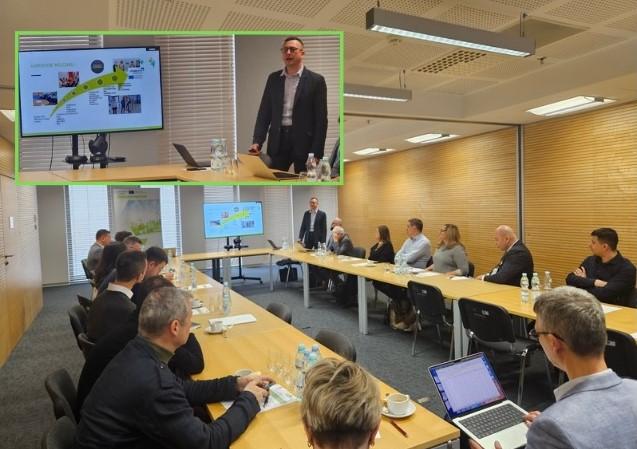Semester 4 ends with the 4th stakeholder meeting - Lubelskie
The Stakeholder meeting
On February 26th 2025, Lubelskie Voivodeship hosted the fourth meeting of the Local Stakeholder Group for the REC4EU project. The event gathered over 20 attendees and was accompanied by the workshops on establishing energy communities.
The welcomed entities that participated in the dissemination of knowledge were, among others:
- University of Life Sciences in Lublin (project experts and other scientists)
- Provincial Fund for Environmental Protection and Water Management in Lublin
- National Chamber of Energy Communities
- Lublin University of Technology
- Włodawski Energy Cluster
- Tomaszowski Energy Cluster
- Niemce Energy Cluster
- Niemce Commune
- The City of Lublin
- The City of Nałęczów
As an opening, the Project Coordinator from the Department of Strategy and Development in the Marshal Office of Lubelskie Voivodeship summarized the 4th semester of peer - to - peer meeting with the Spanish partner and general February meeting in Bratislava. Other undertakings of importance were works on improving the "Energy Policy in the Lubelskie Voivodeship until 2030" and a mid term review.
Then, the project expert, after shedding more light on the inspiration gained form Spain, continued to provide details on the planned pilot action in Lubelskie. The action titled “Minimizing energy poverty by RECs in Lubelskie Voivodeship” is going to be based on 4 pillars, which are:
- Creation of the first model REC in Lubelskie;
- Energy efficiency educational campaign;
- Educational campaign for neighboring commune and Dedicated procedure
- Educating of the society aims to provide an added value to the pilot.
The workshop
Next on the agenda was the workshop on RECs by a National Chamber of Energy Communities representative. The tackled issues were the stages of establishing a cooperative, followed by the principles of its operation.
Basic organizational models of an energy community were specified and the most optimal one in terms of settlements and management was indicated. Then, the real benefits of participation were presented alongside the most likely challenges.
Conclusions
The knowledge dissemination led to a fruitful discussion. In the context of the practical application of the discussed models, the matching of renewable energy consumption to the production capacity and the need to maintain an energy balance were mentioned. Additionally, not only the essence of building energy communities on the most available raw materials was emphasized, but also their differentiation and reasonable management, and therefore ways of managing surplus energy.

